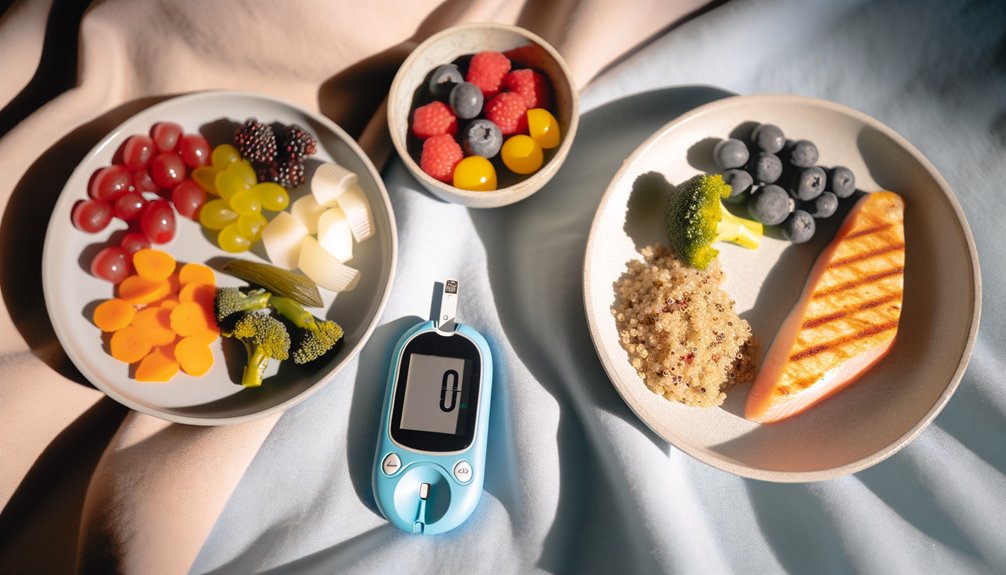Managing gestational diabetes can feel overwhelming, but with the right support, it becomes easier. Early screening is key; many women start as early as 14 weeks. Making healthy lifestyle choices, like focusing on balanced meals and regular exercise, brings hope and control. Insulin can also play an essential role when needed. Regular check-ups help track progress and guarantee both mother and baby stay healthy. Each step taken nurtures a brighter future together, and there’s much more to explore about this journey.

Managing diabetes during pregnancy can feel like traversing a challenging maze, especially when a woman learns she has gestational diabetes mellitus (GDM). For many, the diagnosis comes as a surprise, sparking a whirlwind of emotions ranging from anxiety to determination. Early screening is vital; doctors often recommend testing between 24 and 28 weeks, but those at high risk may start as early as 14 weeks. This proactive approach allows for timely intervention, which is essential for a healthy pregnancy.
Once diagnosed, women learn that lifestyle changes can make a significant difference. Many find they can achieve normoglycemia through diet and exercise, which feels empowering. It’s like finding the right path in that maze. Nutritional guidance emphasizes reducing sugary foods while increasing complex carbohydrates, lean proteins, and vegetables. Meal planning becomes a daily adventure—one that involves creating balanced meals while ensuring at least 175 grams of carbohydrates are consumed to keep energy levels steady. Additionally, these dietary changes are crucial for managing gestational diabetes effectively. ACOG does not recommend routine screening before 24 weeks, highlighting the importance of timely testing.
Lifestyle changes empower women with gestational diabetes to find their path to health through mindful eating and regular exercise.
For some, lifestyle changes alone may not be enough. Insulin becomes a lifeline for those struggling to manage their blood sugar levels. Though it can sound intimidating, many women find reassurance in knowing they are doing everything possible for their baby. Insulin dosing can be tailored to each individual, providing a sense of control amidst the uncertainty. Modern continuous glucose monitoring systems have revolutionized blood sugar management, offering real-time insights and improved maternal outcomes.
Regular monitoring adds another layer of support. Frequent doctor visits help track fetal growth and maternal health, offering peace of mind to expectant mothers. The anticipation of ultrasound appointments can be both nerve-wracking and exciting, as women enthusiastically await to see their baby grow.
In this journey, it’s important to remember that every step taken is a step towards a healthier future. With the right support, women can navigate the complexities of GDM and embrace the joy of motherhood, knowing they are doing their best to care for their little one.
